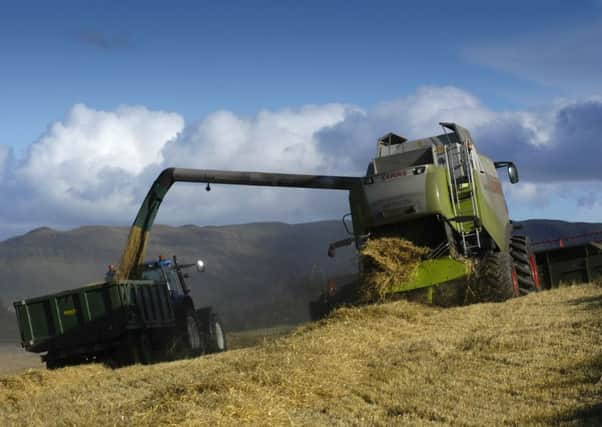Warning over post-Brexit tariffs for cereal growers
This article contains affiliate links. We may earn a small commission on items purchased through this article, but that does not affect our editorial judgement.


Speaking in London, Jack Watts of AHDB Cereals said he did not wish to scaremonger but it was possible that cereals grown in this country and heading into Europe could in future carry tariffs – while at the same time wheat grown in Ukraine could be exported to the EU without any such trade barriers.
Last year, the UK exported some 2.8 million tonnes of wheat. Around 80 per cent of that tonnage went into the EU with the major buyers being the Netherlands, Portugal and Spain.
Advertisement
Hide AdAdvertisement
Hide AdBarley exports from the 2015 crop amounted to just under two million tonnes, two-thirds going to the same three countries.
Both export figures were achieved with a weakening of sterling making the sales more competitive internationally. But any future reduced access to Europe is described in the latest AHDB information document as “one of the biggest risks to the UK arable industry”.
Currently, countries importing wheat into the EU face a tariff of €12 (£10.85) per tonne but one million tonnes of Ukrainian wheat is exempt from that tariff as EU politicians want to show solidarity with that country.
If the EU hid behind a tariff barrier to prevent UK grain entering, one of the main consequences would be exposure to global markets leaving the UK to compete with other countries often working from a lower cost of production base.
If growing grain in other countries proves more commercially attractive in the future, AHDB point out that this might, in turn, lead to a reduction in investment by the global countries currently operating within the UK market.
Watts also warned on potential changes in attitude to GM crops when the UK leaves Europe. This could see the UK government adopt a more open attitude to GM which could exert downward pressure on the internal market.
There could be further complications with GM imports with the Scottish Government taking a more rigid stance against the science.
